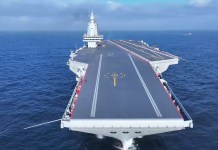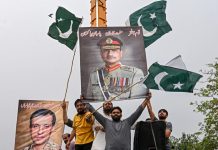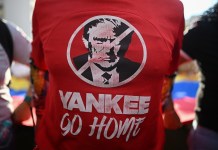“Our bus was fired upon, the RSF troops took us hostage, and we barely escaped an air strike on the militia check-post,” a young Indian executive has recounted the nightmare journey he undertook while fleeing wartorn Sudan to return to India.
Since the civil war started in the strife-torn northeastern African nation, around 2,300 Indians have been evacuated safely to Port Sudan and Jeddah by Indian authorities under Operation Kaveri.
Pranav Shankar, a young executive working in a pharma company in the Sudanese capital, Khartoum, is among those Indians who were evacuated from Port Sudan to Jeddah by the Indian Navy’s INS Teg warship last week.
From Jeddah, he reached Delhi by a commercial flight. But the journey from Khartoum to Port Sudan, Pranav narrates to EurAsian Times, can give goosebumps to anybody.
“Since I shifted to Sudan from the Philippines in March 2022, as my pharma company wanted to extend marketing in the African nation, I was living in an apartment in Al-Riyadh, one of the upscale areas of Khartoum,” said Pranav.
“But when civil war broke out between the Sudanese (regular) army and the RSF (paramilitary force), I could clearly hear and see the sounds of gunfire, explosions, and even the air strike from the window of my flat,” Pranav over the phone from his home in Bihar.
“All the local Sudanese families living in my apartment had left for safer places when the civil war started. RSF Headquarters was very close to my residence, and gunfights had become common in the neighborhood,” said Pranav.
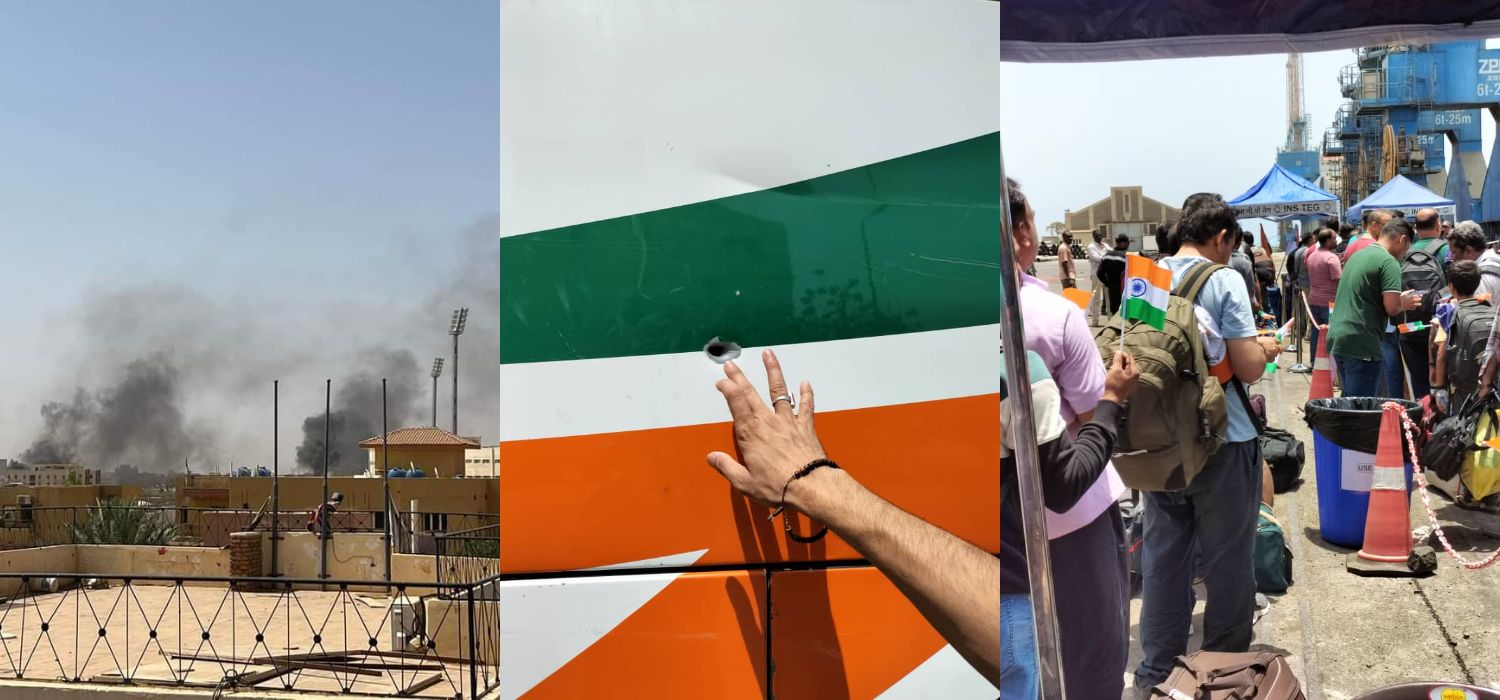
“But one day, I was shocked to see the ground floor of my apartment to be converted into a base by RSF gunmen. This was because the house of the brother of RSF’s top commander, Hemetti, was hardly 2-3 buildings away from our apartment. RSF posted gunmen in my apartment to secure his house, added Pranav. Since then, Pranav’s anxiety grew, adding to the regular calls from family and friends back in India about safety and security.
Northeastern African country Sudan has been again plagued by civil war, with Army and Rapid Strike Force (Rapid Support Force–RSF) at loggerheads since April 15. The war broke out when the Sudanese Army attempted to bring the RSF under its control. RSF was a local militia of approximately 10,000 troops, which was converted into a paramilitary force a few years back.
This move was resisted by RSF Commander Mohamed Hamadan Daglo, popularly known as ‘Hemetti’ or ‘Hemedti.’ This has resulted in Khartoum and its suburbs converting into a real battleground between regular soldiers and the RSF troops. Gunmen of both sides, tanks, and military vehicles moved freely in Khartoum and openly shot whoever opposed them.
As per the latest UN figures, 400 people have been killed and 3,500 injured since April 15 though exact figures remain elusive. Pictures and videos have emerged on social media where military vehicles are seen lined up in the city, soldiers mounting on tanks with people gathered around, and RSF Headquarters being destroyed in the shelling.
Indian citizen Pranav has also shared pictures and videos with EurAsian Times showing an air strike on the city by a fighter jet, continuous gun firing near his apartment, and multiple explosions beyond the residential areas. RSF troops in his neighborhood can also be seen involved in gunfights.
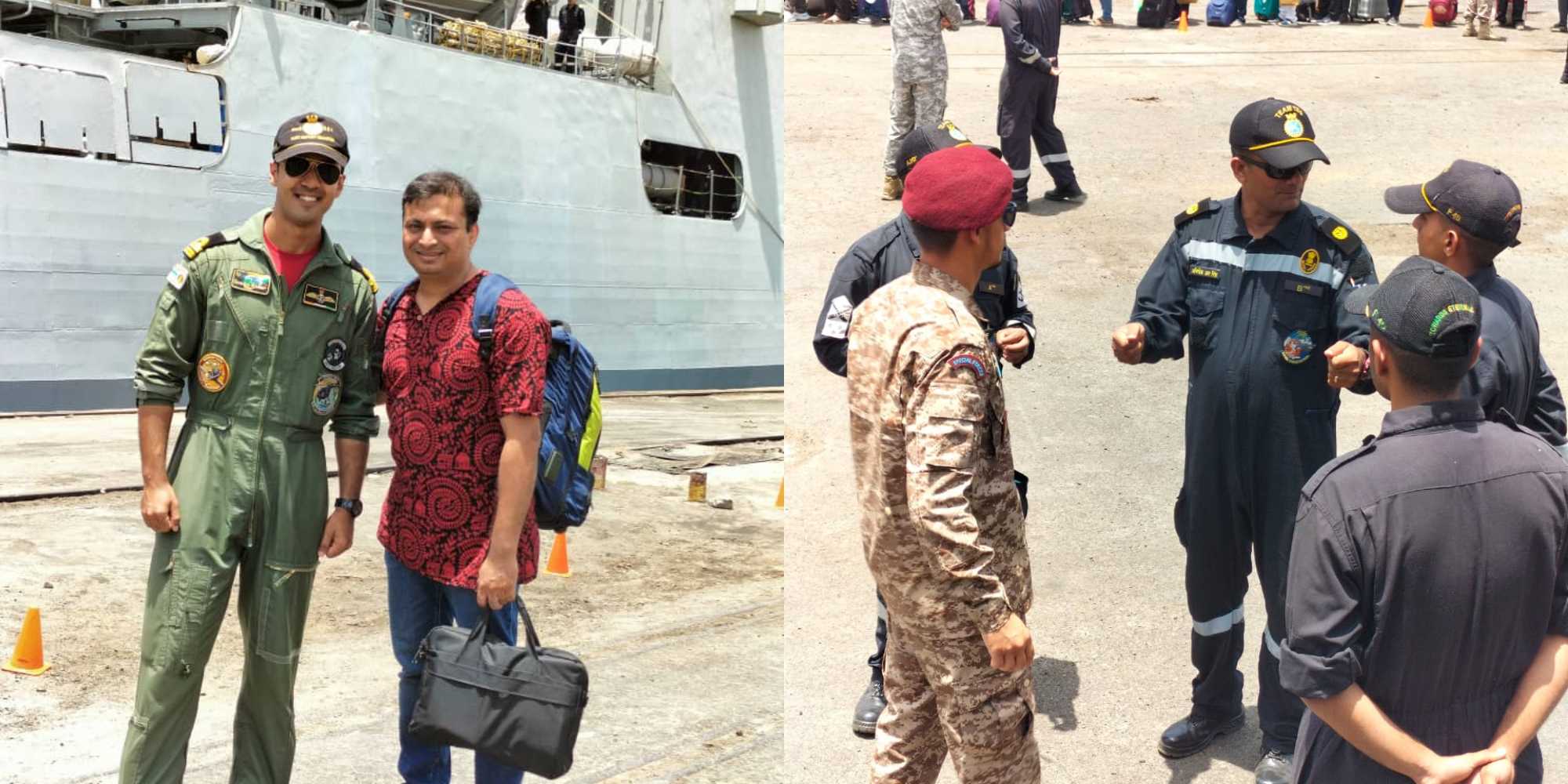
Since the war broke out in Sudan, thousands of foreigners have left the African country. The US, UK, China, and Saudi Arabia have evacuated all their diplomatic staff and citizens from Khartoum and other cities, mainly by Port Sudan, as the Khartoum airport was destroyed after a bloody battle erupted in order to control the airport operations.
India, fearing harm to its citizens, launched Operation Kaveri on April 24 to evacuate about 3,000 Indians from Sudan. The Ministry of External Affairs (MEA), in conjunction with the Indian Embassy in Khartoum, the Indian Navy, and the Indian Air Force (IAF), was at the forefront of this rescue mission.
Indians living in Khartoum and other areas of Sudan were asked to reach Port Sudan, a major port city of Sudan on the Red Sea. INS Sumedha and INS Teg warships of the Indian Navy were rushed from the regular patrolling missions in the Arabian Sea. Two C-130J Super Hercules military transport aircraft of IAF too were flown to Jeddah to act as couriers for Port Sudan.
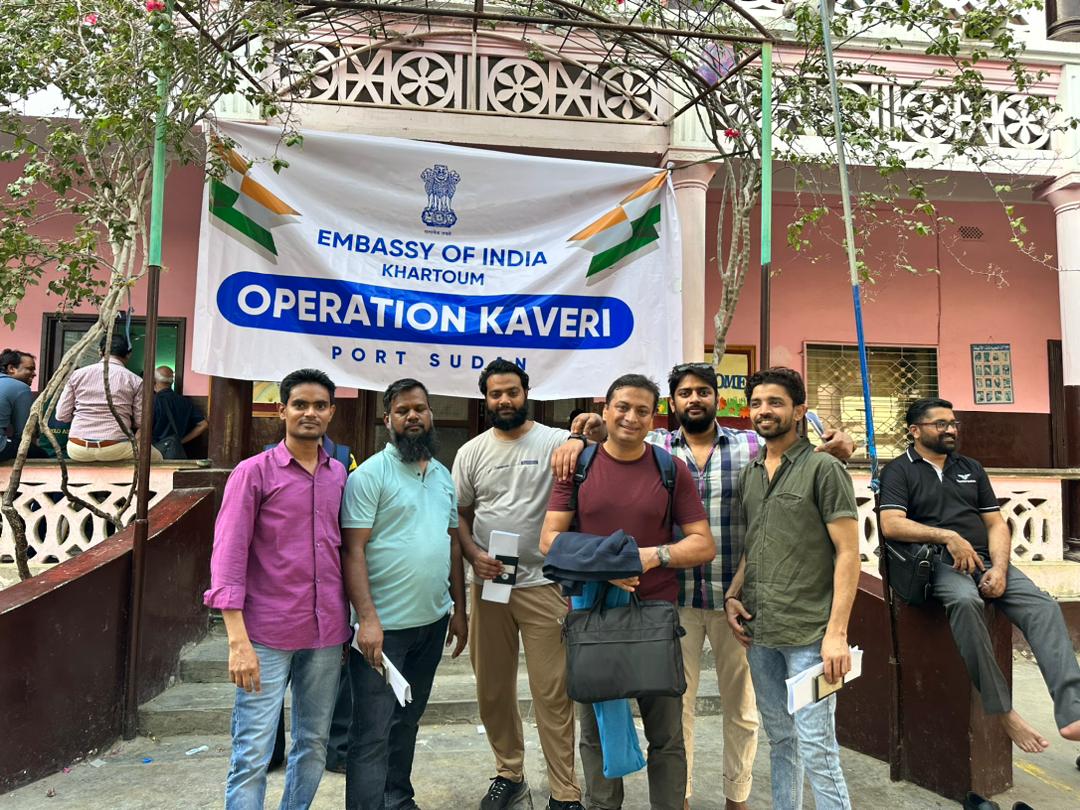
“When I came to know about Operation Kaveri, I requested my (pharma) company to arrange a cab for me to reach Bahri, a suburban area of Khartoum where my Indian friends were living and was a much safer place than the capital city,” informed Pranav. Then began the nightmare of Pranav in the war-stricken country. No cars or cabs were allowed to enter his residential colony as RSF forces fully captured it.
“But then my local cab driver asked me to come down the street one day without any baggage. Instead, he asked me to carry some medicines to pretend to the militia as an ill person who needed evacuation,” said Pranav. This trick worked though RSF troops frisked him and enquired heavily to the cab driver.
Pranav managed to reach the Bahri area, where his friends from UP and Bihar stayed. They all reached Arak city, where the Indian Embassy was shifted from Khartoum after the war began. “It was difficult for even the embassy staff to manage for the bus or any cab as either the travel agencies were charging exorbitant or they didn’t have enough fuel to reach Port Sudan, which was about 800 kilometers and took a 12-hour drive”, said Pranav.
The Indian Embassy later arranged a bus, but it didn’t have enough fuel, so we were told to reach an Indian steel plant in the vicinity. But Pranav and other Indians were shocked to see that RSF troops had already seized the steel plant.
“In fact, due to a delay in communication with the Indian Embassy, the RSF troops took us captive for half an hour,” said Pranav. “Only after being given assurance by the embassy staff on the phone that RSF release us.”
After leaving the steel plant in panic, the Embassy asked Pranav and his group of Indians to go to a refinery that was about 30 kilometers from Arak City. It was evening by then, but instead of returning to the conflict zone in Khartoum, they all decided to go to the refinery to get some fuel in the bus to reach Port Sudan as soon as possible.
“Mid-way to the refinery, we came across an RSF check-post who enquired about us. At that time, the driver learned that he had taken the wrong route and started reversing the bus. Smelling something fishy, the RSF fighters in civies began firing on the bus,” said Pranav. Pranav shared a photo (seen in the collage above) of the bus with bullet marks with EurAsian Times.
“But our local driver was smart enough, and after raising his hands, he shouted in Arabic, which calmed the fighters and let us go from the area,” said Pranav. “But barely had our bus moved a few meters, we heard a huge explosion and saw that the aforesaid RSF check post had been attacked by an air strike by the Sudanese Army,” he added.
According to Pranav, after taking fuel from the refinery, when they returned on the same road towards Port Sudan, they found RSF fighters dead at the same check post, which now stood destroyed. Then they traveled for about 3-4 hours non-stop, only briefly halting at a roadside eatery to have some food. The local driver informed them that it was a safer zone. On April 25, the bus reached Port Sudan, where INS Sumedha was carrying the Indians to Jeddah.
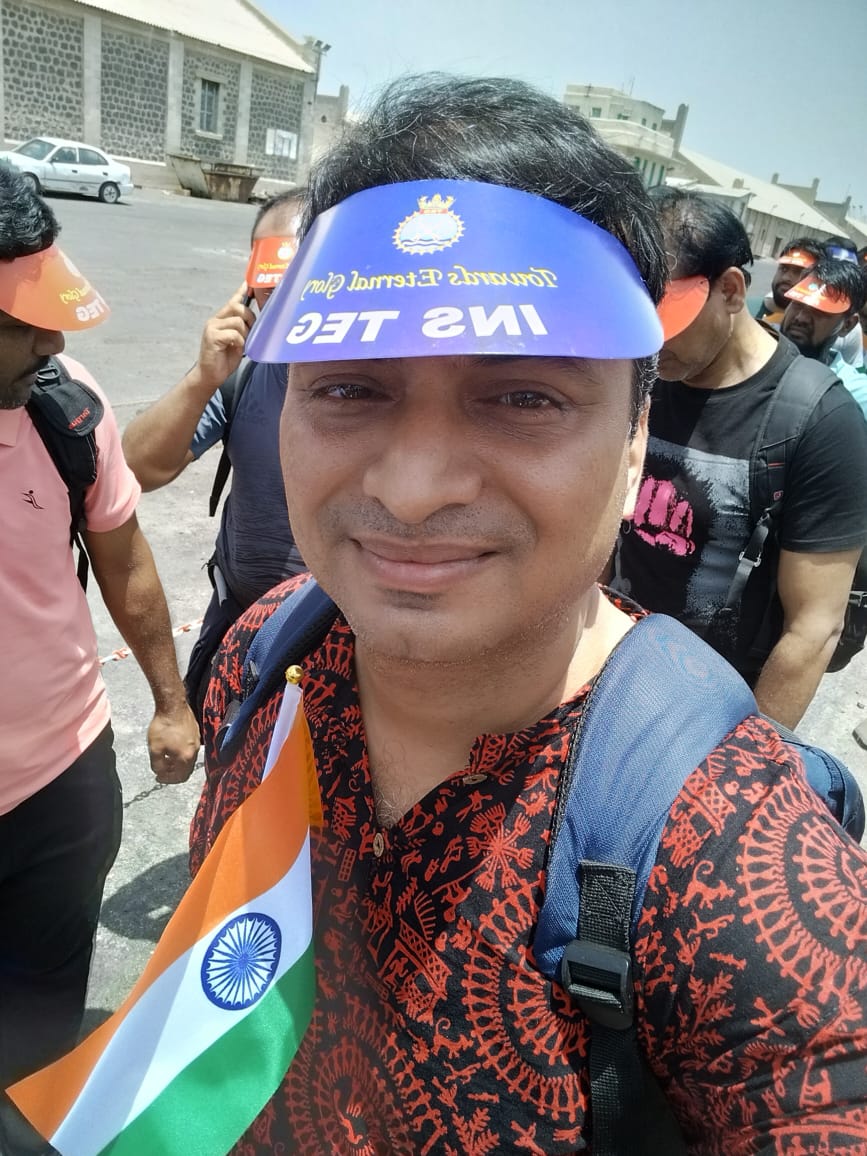
“Seeing the Indian Navy ship and sailors at Port Sudan along with some embassy staff, we had smiles on our faces which were missing from the past few days,” recalled Pranav. It was an enthralling moment as Indian music played at Port Sudan, and everyone was chanting ‘Bharat Mata Ki Jai’ and ‘Vande Matram.’
“For one night, we stayed in a local Gujarati school in Port Sudan with an affluent Gujarati community. Port Sudan was a peaceful city where foreigners could also be seen as it was from there that citizens of the US and other countries were proceeding to their respective places,” he said.
On April 27, another warship of the Indian Navy, INS Teg, reached Port Sudan, by which Pranav and his group of friends embarked on a journey to Jeddah. “At Jeddah, we were taken care of well by the Embassy staff, and then the next day by a commercial flight, we took our journey for Delhi,” says Pranav, who has now reached his home to meet his family.
Note: This article is based purely on interaction with Pranav Shankar (which is not corroborated by Indian authorities or other agencies in war-torn Sudan).
- Penned By: Neeraj Rajput
- Please email us at etdesk (at) eurasiantimes.com

